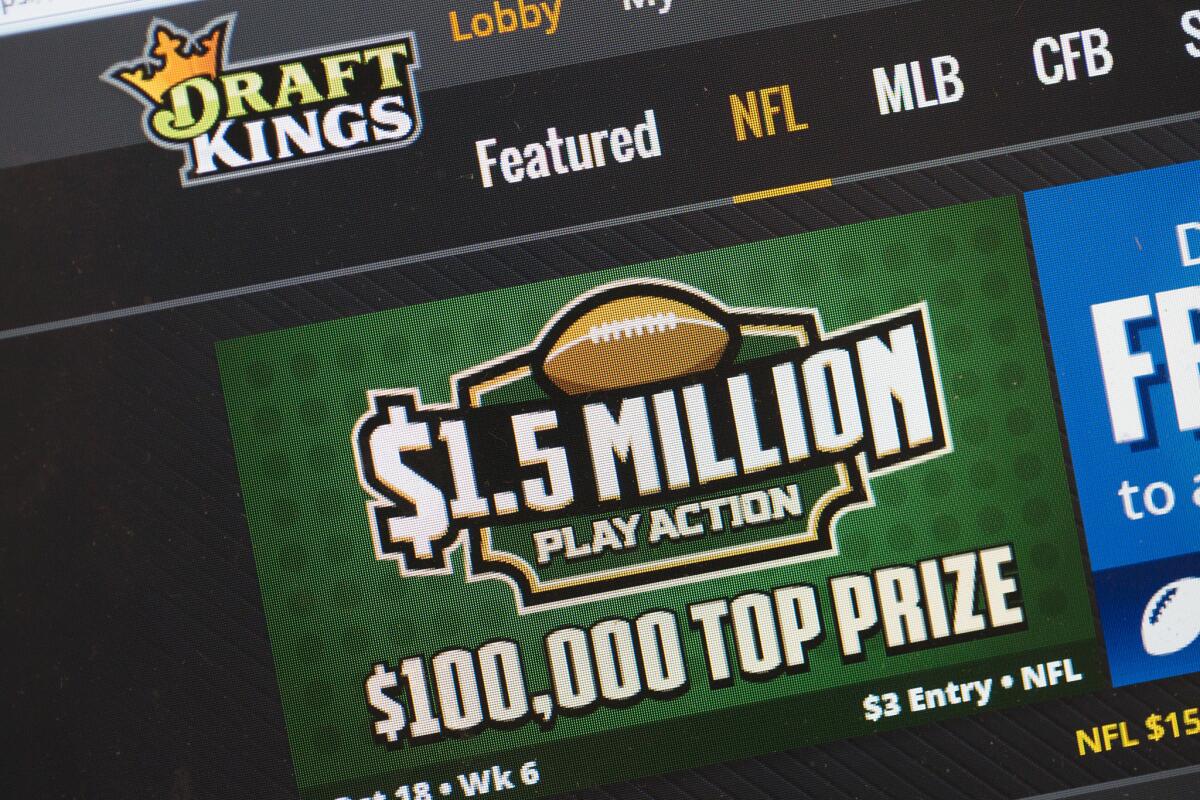Editorial: License and regulate all online gaming sites, not just fantasy sports

The daily fantasy sports website DraftKings is one of the many fast-growing online gaming businesses.
- Share via
Betting on sports is illegal in most states, California included. Nevertheless, betting on a hand-picked group of star athletes — also known as playing “daily fantasy sports” — has become a multibillion-dollar enterprise seemingly overnight, spurred by a barrage of advertising and investments from major sports leagues. Lawmakers and attorneys general across the country are trying to decide whether to regulate fantasy sports betting or simply ban it. As usual, though, they’re way behind the curve.
In a fantasy sports league, participants “draft” teams composed of athletes from a variety of professional teams, then compete against each other based on how their players perform in real life. People have been forming leagues — and betting informally on them — for decades. What’s different now is the emergence of fast-growing businesses such as FanDuel and DraftKings that charge players fees to play online, then award a portion of the fees to those whose teams prevail in daily or weekly contests.
The federal law that banned online gambling exempted fantasy sports on the grounds that they were, in Congress’ view, games of skill rather than games of chance. But states have enacted their own rules, and five state attorneys general have declared that daily fantasy sports sites are in fact running games of chance that violate their gambling laws. Two states have said they don’t; California’s Kamala Harris is still thinking about it. The legal jockeying has prompted the fantasy sports leagues and their backers, which also include major broadcasters and cable companies, to lobby state legislatures for protection for themselves and their clientele.
That smacks of asking for forgiveness instead of permission, which seems to be the modus operandi for online businesses. Nevertheless, it may be too late to ban fantasy sports, which have already become a large part of the online gaming phenomenon. The leagues have drawn millions of players, just as online poker sites have developed huge followings regardless of their legality. The fact that fantasy sports leagues and other online games are legal in some jurisdictions means that it will be difficult, if not impossible, to stop people from playing them even where they are illegal.
The smart approach is to regulate the leagues, ideally within the context of a comprehensive approach to online gaming. That way the state can protect consumers against fly-by-night sites while requiring companies to use sophisticated technology to block minors and problem gamblers, pay fees that can be used for oversight and enforcement, and guard consumers against insiders competing unfairly for jackpots, as both FanDuel and DraftKings were accused of allowing last year. None of those protections is assured online today.
California lawmakers have been trying for years to create this sort of framework for online poker, only to be thwarted by internecine battles among the state’s licensed gaming businesses. Assemblyman Adam Gray (D-Merced) is now championing a bill to license and regulate just the daily fantasy sports operators, but his bill is likely to run the same gantlet of resistance from Indian tribes, racetracks and card clubs. The argument for setting up a safer environment for fantasy sports games applies in spades to online poker. It’s time for the Legislature to stand up to the competing gambling interest groups and adopt safeguards that apply across the online gaming boards.
Follow the Opinion section on Twitter @latimesopinion and Facebook
More to Read
A cure for the common opinion
Get thought-provoking perspectives with our weekly newsletter.
You may occasionally receive promotional content from the Los Angeles Times.









